Gregory Crouch's Blog, page 29
October 22, 2012
Shanghai Daily — Aviation legends in Shanghai
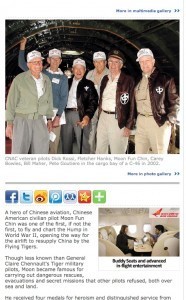 Here’s an article about Moon Chin, Pete Goutiere, and a group of CNAC Association members on their recent trip to China, published by ShanghaiDaily.com.
Here’s an article about Moon Chin, Pete Goutiere, and a group of CNAC Association members on their recent trip to China, published by ShanghaiDaily.com.
Best of all is the wonderfully atmospheric one or two minute video that focuses on Moon and Pete that appears to have been made by the Peninsula Shanghai.
It looks like they may have nabbed a photo from this website.
October 2, 2012
The Loening Air Yacht – photo gallery
The Loening Air Yacht was the height of CNAC’s commercial aviation technology when China’s Wings‘ main character, William Langhorne Bond, arrived in China in March, 1931.
Here is a gallery of photos of the ungainly beast:
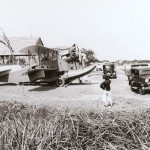
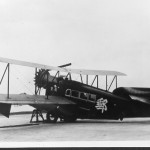
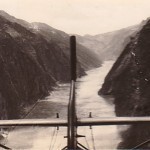
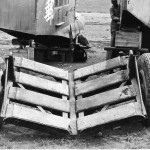
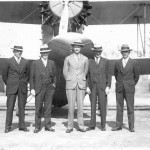
September 27, 2012
The Douglas Dolphin – a photo gallery
Continuing with my recent theme of posting thematically linked photo galleries related to the China National Aviation Corporation (CNAC), subject of my book, China’s Wings, here’s a gallery of Douglas Dolphin photos. Douglas only built 58 Dolphins, and two of them served with CNAC in China.
Whenever anyone asks Moon Chin what was his favorite airplane that he ever flew, he always answers something to the effect of, “The Douglas Dolphin — it was the only overpowered seaplane I ever flew.” He loved those two 450 hp Pratt & Whitney R-1340 Wasp engines.
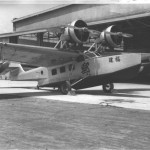
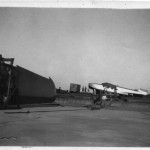
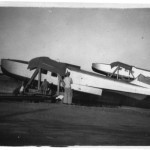
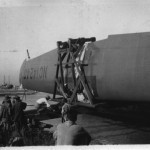
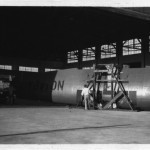
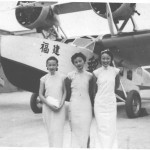
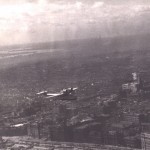
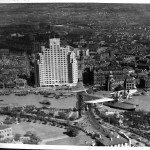
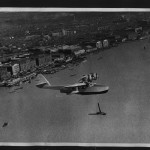
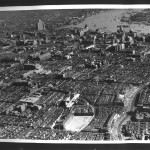
September 26, 2012
Honor to the fallen — and damn glad they’re on our side
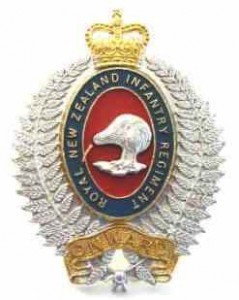 The Royal New Zealand Infantry Regiment lost three men in Afghanistan recently: Corporal Luke Tamata, 31, Lance Corporal Jacinda Baker, 26, and Private Richard Harris, 21.
The Royal New Zealand Infantry Regiment lost three men in Afghanistan recently: Corporal Luke Tamata, 31, Lance Corporal Jacinda Baker, 26, and Private Richard Harris, 21.
Here’s a video of their battalions performing a Maori Haka war dance in their honor.
Count me in the front rank of those who’re damn glad we’ve been on the same side as the ANZACs in every fight since the Great War.
Also makes me think of my recently fallen friend, Athol Whimp, who I’m pretty sure served in the RNZIR on his way through to the New Zealand SAS.
*** Just heard from Athol’s great friend and climbing partner Andrew Lindblade that Athol did indeed serve in the RNZIR, in 2nd Battalion, Canterbury Regiment.
September 24, 2012
The first commerical airliner ever shot down by hostile air action, pictures
CNAC DC-2 #32, the Kweilin, was machine-gunned and forced down by five Japanese pontoon biplanes on August 24, 1938, shortly after leaving Hong Kong’s Kai Tak Airport.
Hugh Woods was at the controls, and only his hot stick flying kept the plane in the air long enough to safely ditch in a river. The Japanese seaplanes machine gunned the downed plane for more than an hour, killing two of the crew and 13 passengers. It’s the central incident of chapter 13 of China’s Wings, The Kweilin Incident, and there’s an incident report and a list of the fatalities posted at cnac.org.
Here’s a gallery of photos of taken during the salvage operation:
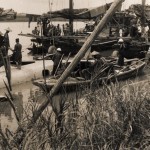
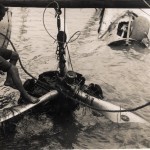
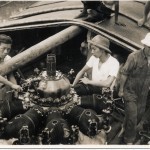
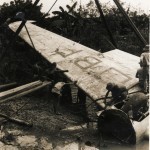
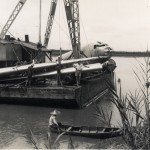
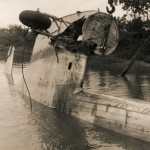
The plane was salvaged, repaired, refurbished, rechristened and given a new number (#39, the Chungking), and in October, 1940, it became the second CNAC airliner destroyed in-service by hostile air action, at Changyi, outside Kunming. Nine people were killed in the attack, including the pilot, Foxy Kent. There would be no third shootdown for the ill-starred airplane — it burned to slag.
September 20, 2012
Another gallery of DC-2 pictures
Building on my previous post about the DC-2 arriving in China in May, 1935, here are a few more photos of my favorite airplane in China’s Wings:
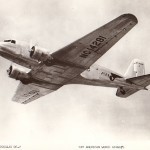
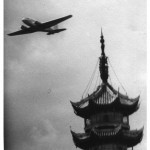
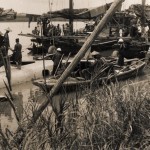
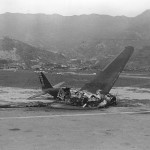
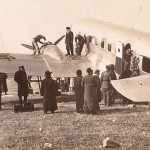
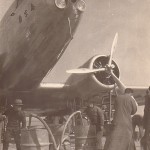
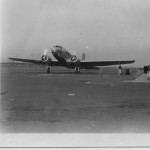
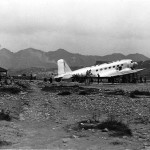
September 17, 2012
The DC-2 arrives in China, spring 1935
The DC-2 came to China in the spring of 1935, and it was one of the seminal moments in the development of Chinese aviation. Precursor to its much more famous successor (the DC-3), the DC-2 was a superb aircraft in its own right, faster sleeker, and more reliable than any commercial aircraft ever before seen in the Middle Kingdom. It had none of the criss-cross mishmash of struts and spars that had knit together previous generations of aircraft, not a single one. Something about the DC-2 inspired confidence, it looked like an airplane was supposed to look, and within 90 days of its arrival, the China National Aviation Corporation’s passenger traffic had jumped 300 percent. And through the years of writing, the DC-2 grew into my favorite airplane in China’s Wings.
Here’s a run of photographs taken during the DC-2 arrival, all courtesy of the Edward P. Howard collection:
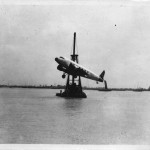
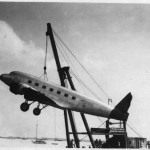
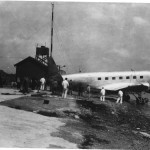
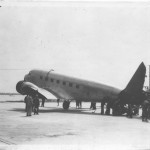
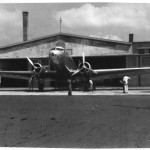
September 10, 2012
Photos from the 2012 CNAC reunion
As I do every year, I had a marvelous time at the just completed CNAC reunion. (If you don’t know about CNAC, the legendary China National Aviation Corporation, here’s an explanation. It’s one of the best aviation stories of all time.)
The great surprise to me was meeting Langhorne and Queta Bond. I had no idea they were coming, and I jumped out of my skin when I was introduced. Langhorne is the son of William Bond, my main character in China’s Wings, and I must say, he looks just like his old man, except bigger. Langhorne is my size, over six feet tall; I think his father was quite a bit smaller. I’d interviewed Langhorne many times, and he, Queta, and Langhorne’s brother, Thomas, were all tremendously helpful throughout the writing process. Deepening the Bond family’s aviation connections, Langhorne headed the FAA during the Carter administration.
For me, it was a huge buzz to feel how happy the CNAC family is with the book I spent so long researching and writing. It’s a nice feeling to have finally produced it, instead of always having to tell them that “I’m writing a book about CNAC.” I got as many of them as possible to sign MY copy, which now looks like a high school yearbook.
Here are a few photos of the fun:
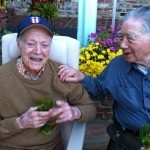

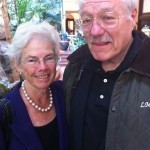

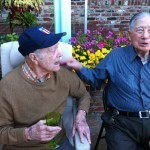
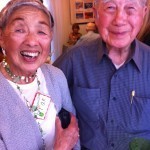

September 8, 2012
CNAC’s two senior pilots, plus links to Moon Chin stories
The 2012 CNAC reunion is currently running strong. Last night was the annual party at Moon Chin’s house, which was wonderful, as always.
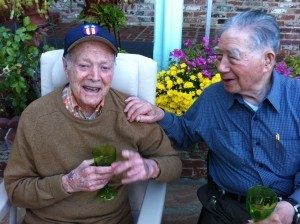
Pete Goutiere and Moon Chin, both still going strong in their late 90s.
Pete and Moon are both among China’s Wings main supporting characters, and I’m tremendously grateful to both men. I spent many hours interviewing them. Without their wholehearted cooperation — indeed, without the wholehearted cooperation of the entire CNAC Association, I wouldn’t have been able to write the book at all.
Moon Chin has one of the most amazing lives of modern times. More than a year ago, I posted about it extensively. Here’re the links to those posts. They’re best read in order. They’re also a pretty good window into what it was like to be a Chinese immigrant to the United States in the first half of the 20th Century.
All Roads Led to Moon Chin
Three Great Pilots
Moon Chin joins CNAC
How the San Francisco Earthquake Made Moon Chin a citizen, part I
How the San Francisco Earthquake Made Moon Chin a citizen, part II
How the San Francisco Earthquake Made Moon Chin a citizen, part III
Moon Chin finally gets to meet his father — at age 10
Moon Chin emigrates — and goes to jail
Moon Chin languishes in an INS jail
The economic opportunities in a place called Baltimore
Lindberg’s crossing captivates Moon Chin
Moon Chin learns to fly
Ceiling 500 feet, intermittent drizzle
Why interviewing Moon Chin is like interviewing a jazz riff
September 6, 2012
Video of a WWII bomb detonation in Munich — last week
Ever wonder how much damage a 550-pound bomb did during the Second World War?
Well, last week, workers discovered one on the site of an old bar in Munich. It had a chemical fuse that couldn’t be defused, so bomb disposal experts had to set it off.
Smithsonian posted a video of the detonation.
It’s impressive. And more than a little frightening considering the colossal quantity of ordinance used during that awful conflict.



